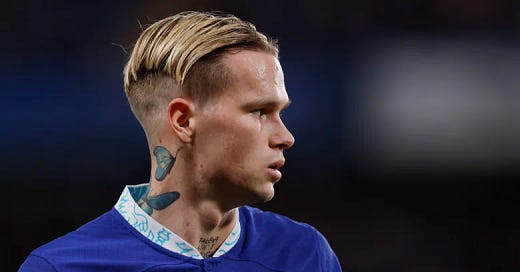Chelsea’s 2021/22 accounts cover a season which was largely a case of “so near, so far” on the pitch, as they finished 3rd in the Premier League and lost twice on penalties to Liverpool in the domestic cup finals. They were also eliminated in the Champions League quarter-finals by eventual winners Real Madrid.
Nevertheless, some silverware did end up at Stamford Bridge, as Chelsea were victorious in both the UEFA Super Cup and FIFA Club World Cup.
All this was achieved under the guidance of head coach Thomas Tuchel, but the German was shown the door in September this season, replaced by Graham Potter. However, “Potterball” did not seem to work at Chelsea, so he left after only seven months, succeeded by his former assistant Bruno Saltor for one game, before the caretaker made way for the return of the prodigal son in the shape of Frank Lampard.
However, the most seismic event for Chelsea was a change in the ownership after 19 years, as Roman Abramovich made the “incredibly difficult decision” to sell Chelsea “in the best interest of the club” following Russia’s invasion of Ukraine.
As a consequence, a consortium led by American businessman Todd Boehly and Clearlake Capital acquired Chelsea in May 2022 for £2.5 bln (plus £1.75 bln infrastructure commitment).
Chelsea fans would have been forgiven for thinking that this heralded a change in approach, as private equity firms are not known for their willingness to splash the cash, often looking to make efficiencies and cut costs, but so far, the new owners have showed a remarkable willingness to splash the cash.
Profit/(Loss) 2021/22
Chelsea’s pre-tax loss reduced from £156m to £122m, as revenue increased by £46m (11%) from £436m to a club record £481m. The loss would have been even higher without the benefit of £123m profit from player sales, up £95m from the previous season’s £28m.
Operating expenses shot up £93m (15%) to £724m, though this included significant once-off charges.
The main reason for Chelsea’s revenue increase was the return of fans to the stadium, which led to significant increases in both match day, up £61m from just £8m to £69m, and commercial, which rose £23m (15%) from £154m to £177m.
However, broadcasting fell £39m (14%) from £274m to £235m for two reasons: (1) the prior year included some revenue deferred from 2019/20, as the season was extended beyond the club’s accounting close; (2) a worse performance in the Champions League.
Keep reading with a 7-day free trial
Subscribe to The Swiss Ramble to keep reading this post and get 7 days of free access to the full post archives.





